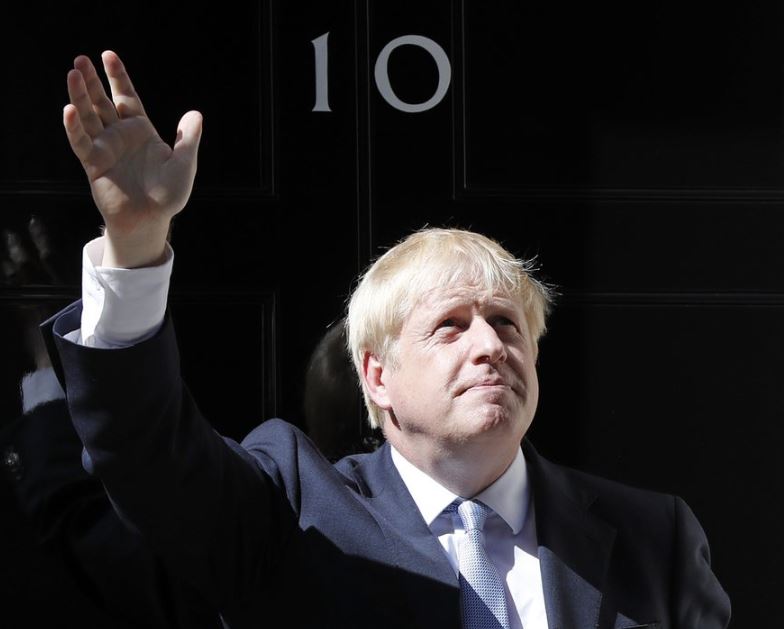
(Photo: AP)
London (People’s Daily) -- On December 12, Britain went to the polls for the third time in five years. It was the first time in nearly a century that the UK had held a general election in the middle of a cold December winter.
Dressed in winter clothes and under large umbrellas, voters walked into more than 10,000 polling stations across the country to choose their members of the House of Commons.
Final results show the Conservative Party, led by incumbent Prime Minister Boris Johnson, has won a larger-than-expected 364 out of 650 seats. The last time the Tories had such an advantage was more than 30 years ago under Margaret Thatcher.
The main opposition Labour Party took just 203 seats, its biggest defeat since 1935. Labour leader Jeremy Corbyn has announced he will not stand for re-election.
The British general election adopts the small-constituency system. The country is divided into 650 constituencies. Each constituency produces one member of Parliament. The remaining "swing districts" are particularly important because most of them have long been dominated by a particular party.
Analysts believe that this time, the conservatives intensified their campaign in central and northern England, a traditional Labour constituency, where minor parties promised not to challenge Tory seats, hence the conservatives won more votes.
The Brexit issue dominated the election. Against the backdrop of a protracted Brexit, the issue affected voters' intentions and party loyalty, leading some voters who previously supported other parties to switch to the conservatives hoping that the new government could finish Brexit as soon as possible as promised during the election campaign.
It is believed that the Conservative Party's winning an absolute majority in parliament will give Johnson greater political security and the legitimacy of his negotiating authority, which means that the Brexit deal is expected to be passed smoothly in the House of Commons and the UK is more likely to leave the EU at the end of January.
Back at 10 Downing Street, Johnson promised in his victory speech that he will formally begin the first reading of the Brexit deal in Westminster next Friday and will complete legislation soon after the Christmas and New Year holidays to allow Britain to leave the EU on January 31.
"We will have a Brexit by January 31. No ifs, no buts, no maybes," he said. "The people want change, and we can't, we can't let them down."
"The most important thing is not the UK leaving the EU, but what kind of relationship the UK can have with the EU," French EU affairs minister Jean-Michel Montcharin told reporters in Brussels.
The conservatives' campaign pledge to leave the EU by January 31 with a transition period of no longer than the end of 2020, means Johnson must complete a trade deal with the EU within 11 months of leaving.
However, the EU's new free trade agreement is likely to take at least three years to negotiate.
Michel Barnier, the EU's chief Brexit negotiator, has repeatedly warned that it would be "unrealistic" for Britain and the EU to negotiate a trade deal within 11 months if Johnson refused to extend the transition period.
Tim Bell, professor of politics at Queen Mary University in London, agreed that although Johnson's victory in the general election will push the Brexit deal through parliament, the parties are likely to clash and split over the FTA negotiations.


